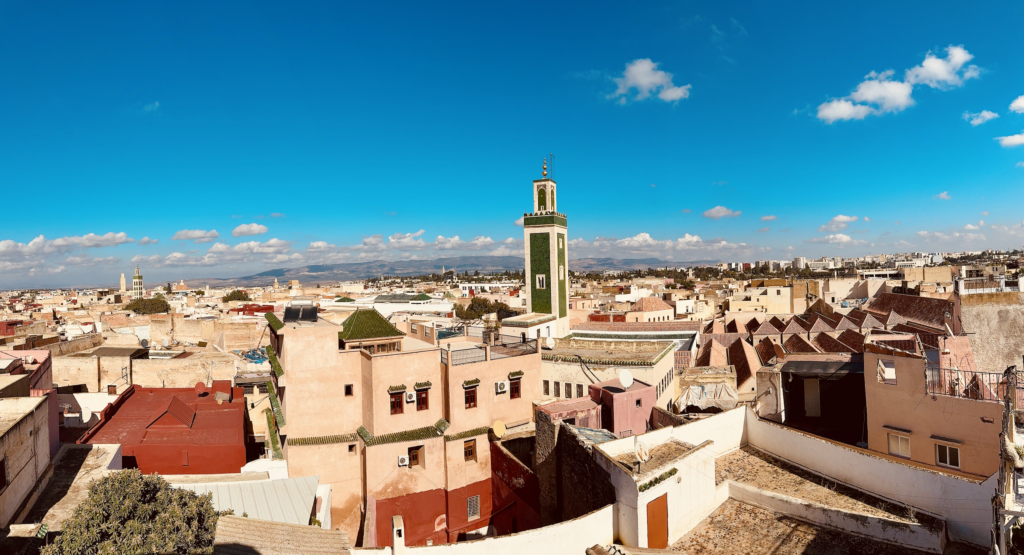Summarize this content to 2000 words in 6 paragraphs
I am spending an extended time staying in Morocco for a family commitment, and dipping in and out as a tourist while also being an almost semi-local, in the 5-6 weeks stay here. I am experimenting with a video diary format around my thoughts on the travel industry from the lens of this stay in Morocco. Hope you like it. This is the first one and a short essay based on the video is below it.
If you aren’t able to the video properly here, check this out directly on my Linkedin post.
Experiential Travel in Morocco: Preserving Authenticity in a Digital Age
As I sit in the heart of the old Medina in Fez, Morocco, I’ve been reflecting on how this country gets so many things right when it comes to experiential travel. In an era where everything is becoming digital and retail experiences have largely moved online, Morocco offers something profoundly different—a sensory-rich, five-senses experience that can’t be replicated on a screen or become obsolete.
Walking through the souks, the traditional marketplaces, is an immersion into a world where retail meets food meets local hospitality. The air is filled with the aroma of spices, the vibrant colors of handcrafted goods, and the sounds of lively bargaining. It’s an experience that engages all the senses and connects you directly with the culture and people.
One unique aspect of Moroccan hospitality is the riads—traditional houses or villas converted into hotels. These spaces offer an immersive and authentic experience that hasn’t been replicated elsewhere. Staying in a riad is not just about accommodation; it’s about living within the history and traditions of Morocco, seamlessly blending the traditional with modern comforts.
In contrast, attempts to replicate these experiences in modern cities—especially in some Middle Eastern countries—often feel inauthentic or inorganic. Souk-like environments in these places lack the organic growth and cultural depth that make the original souks of Morocco so special. It’s a reminder that some things cannot be manufactured; they have to evolve naturally over time.
This raises important questions about how we can protect these authentic experiences without turning them into museum exhibits or tourist traps. Fez, in many ways, has already become a simulacrum—a copy of itself designed for tourists. How do we preserve the genuine essence of these places while respecting the local people’s agency and their desire to live a modern life?
There are valuable lessons here for other countries and regions looking to develop experiential tourism. It’s not about artificially creating attractions but fostering environments where culture, tradition, and modernity coexist organically. It’s also about encouraging visitors to explore beyond the well-trodden tourist paths, spending time in areas that may not be as famous as Marrakech but offer rich and authentic experiences.
The experiential future of travel may well depend on our ability to balance digital conveniences with the irreplaceable value of authentic, sensory experiences. Morocco shows us that even in a rapidly changing world, there’s still a place—and perhaps an even greater need—for experiences that connect us deeply with the places we visit and the people we meet.


